The vow by Paris to say adieu to the poo and make the Seine a safe, sewerage-free swimming venue for the Olympics is a whiff closer, writes Editor at Large Louise Evans.
The last thing anyone who has enjoyed a River Seine cruise would do is dive overboard for a swim in the polluted water – but that’s exactly what’s going to happen at the Paris 2024 Olympics.
Paris will stage the Olympic 10km open water swim event and the triathlon (1,500m) and para triathlon (750m) swim legs in the Seine River – with a 1.4 billion Euro ($A2.25 billion) cleanup well underway for the famed river that flows through the heart of Paris.
With the Olympics starting in just over 80 days French officials this week unveiled its new sewerage solution, a huge underground reservoir built under Paris that’s the key to a clean Seine.
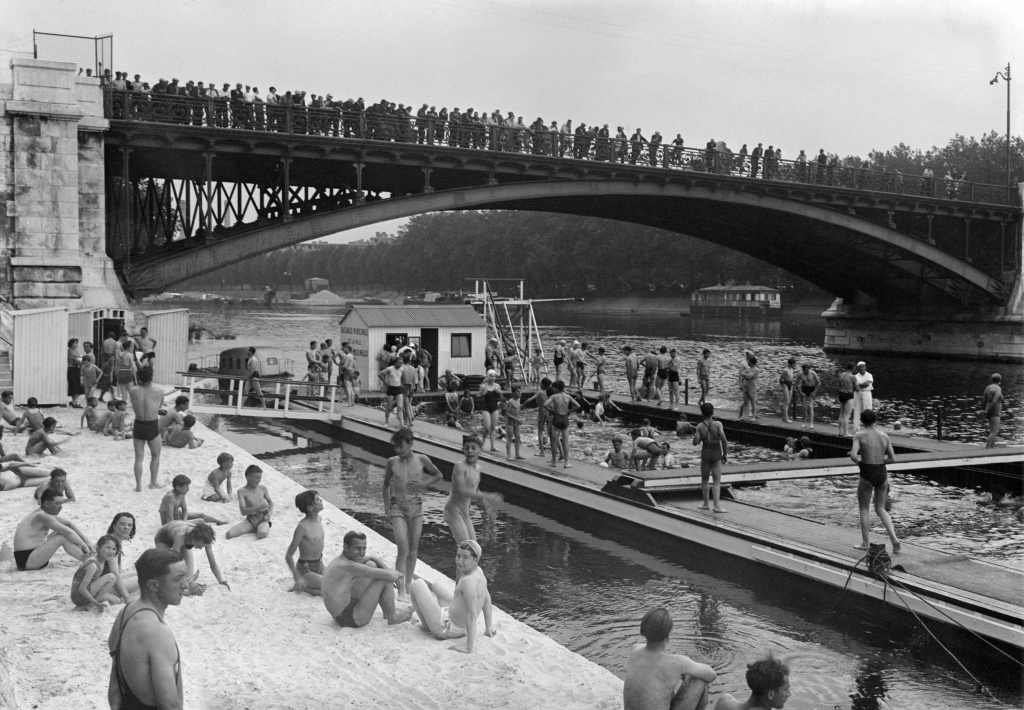
The Olympic marathon swimming and triathlon events at Paris 2024 will start and finish at Pont Alexandre III, the bridge that connects the Champs-Élysées with the Invalides and the Eiffel Tower, with athletes swimming in the Seine for between 30 minutes and two hours.
Swimming in the Seine has however been banned for over a century because of high levels of pollution and the presence of E.coli and Enterococcus – both indicators of sewerage in the water. This is caused by an old-world, and overwhelmed, sanitation system that causes the sewers in the French capital to overflow and discharge harmful bacteria into the Seine during periods of heavy rain.
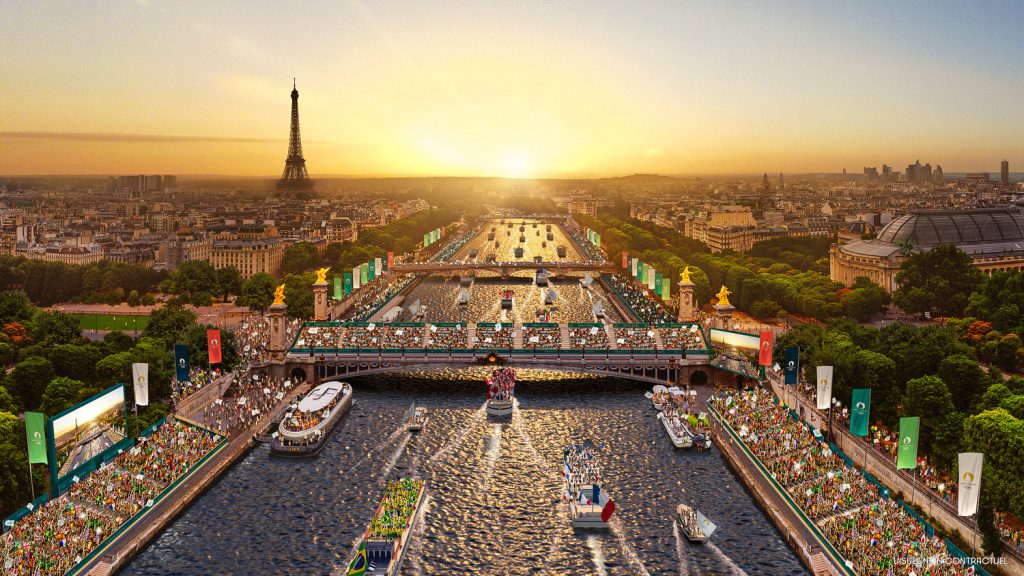
About 30 years ago then Paris mayor and later French President Jacques Chirac announced a major cleanup of the Seine and even vowed to swim in the river himself when it was completed. Alas Chirac died in 2019, having never been able to stage his public bath.
Since 2002, the summer Paris Plages event offers Parisians and visitors free areas to sunbathe and relax by the river but swimming in the Seine in the city centre was considered “quelle horreur” – awful. It is also officially banned and attracts a fine.
But when France won the right to host the 2024 Games, Parisians famously vowed to say adieu to the poo – not only making the Seine clean and swimmable for the 2024 Olympics but to open select sites along the Seine for general public bathing the following year.
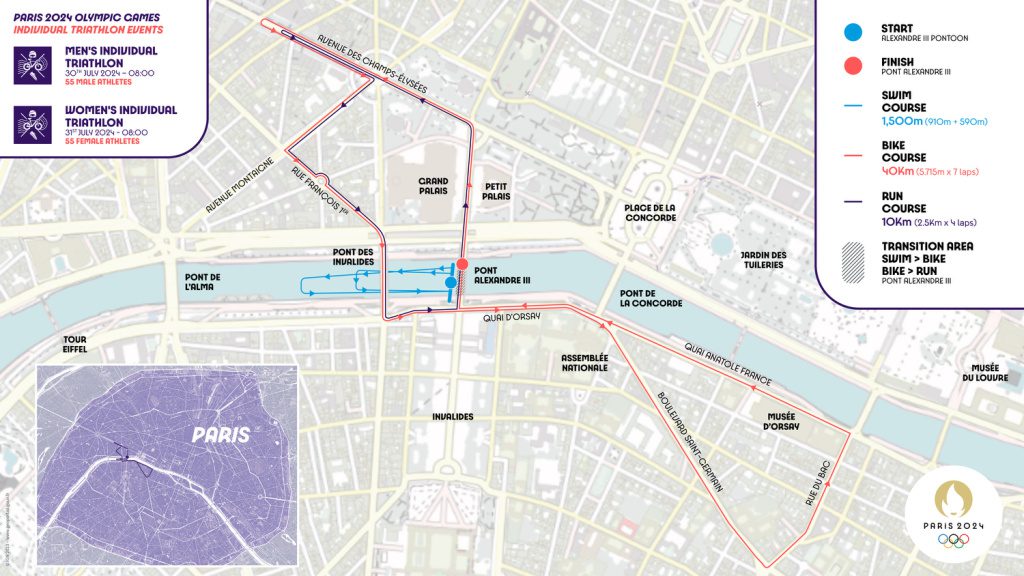
The key to the cleanup lies under a public garden near the Left Bank’s Gare D’Austerlitz, where a vast subterranean water tank has been built to store stormwater, preventing sewage spilling into the river during heavy rain sessions. The underground basin has a 50,000 cubic-metre capacity – about 20 Olympic pools – that should prevent the city’s sanitation network from being overwhelmed.
A Paris Deputy Mayor Pierre Rabadan, the former international rugby player who is in charge of Olympic Sport, announced on Twitter on June 8, 2023 that the initial test results of water quality had proved “excellent” and test events for the marathon swimming (August 5-6) and triathlon (August 17-20) could proceed.
“The first results of the water quality of the Seine for the 2023 summer season have arrived. They reveal an excellent quality for the Test Évents of this summer, the historic events in the Seine of the JOP of @Paris2024 then for the general public in 2025! ??” Rabadan tweeted (in French). But the test events were cancelled when bacteria levels rose above safe limits.
But now the 30m-deep Austerlitz basin, three-years in the making, has been declared complete, proving Paris’s ability to “provide athletes from all over the world with an exceptional setting on the Seine for their events” according to Sports Minister Amelie Oudea-Castera.
Paris Mayor Anne Hidalgo and French President Emmanuel Macron have both promised to go for a swim in the Seine before the start of the Olympics to “prove” the famed river was fit for purpose. In true French fashion they have speculated about what swim suits they’ll wear.
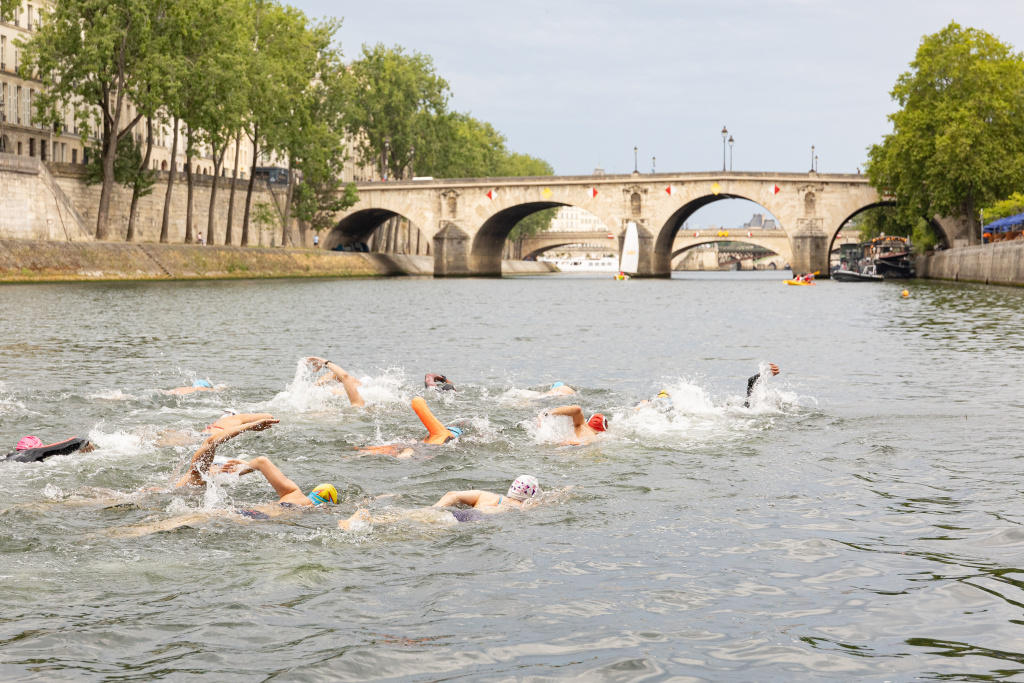
Basin engineer Samuel Colin-Canivez cautioned however that extenuating factors, including summer storms and rain bombs, could still test the new system. During the Olympics, the water will be tested at 3am each day to determine if events can proceed with competition being delayed for a day or two if the water does not pass the test.
Beyond the Olympics, Parisians have been told that come the summer of 2025 they will have access to 26 new swimming pools dotted along the Seine, with four in the city centre that will be roped off and protected from the heavy boat traffic that ferries, cargo, garbage, and about seven million tourists annually.
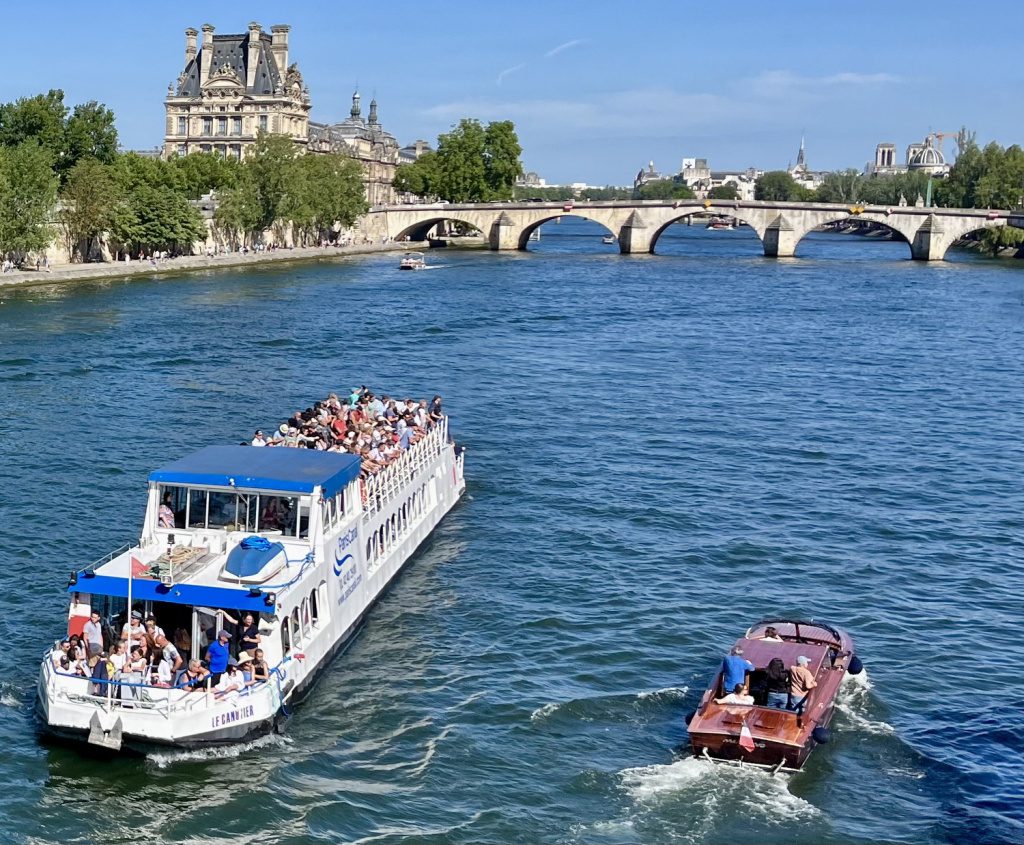
Another deputy mayor Colombe Brossel, who looks after cleanliness of public spaces, sorting and reducing waste, recycling and reuse, said the massive 1.4 billion Euro investment and cleanup would be an Olympic “inheritance” for the people of Paris and the capital’s many visitors.
Louise Evans is an award-winning journalist who has worked around Australia and the world as a reporter, foreign correspondent, editor and media executive for media platforms including The Sydney Morning Herald (eight years), The Australian (11 years) and Australian Associated Press (six years in London, Beijing and Sydney).
A women sports’ pioneer, Louise was the first female sports journalist employed by The Sydney Morning Herald and the first female sports editor at The Australian. Louise went on to work at six Olympic Games, six Commonwealth Games and numerous world sporting championships and grand slam tennis events.
Louise is the Founding Editor of AAP FactCheck, the Creator of #WISPAA – Women in Sport Photo Action Awards and national touring Exhibition and the author and producer of the Passage to Pusan book, documentary and exhibition.
In 2019 she was awarded the Order of Australia Medal (OAM) Queen’s Honour for services to the media and sport and named an Australian Financial Review Top 100 Woman of Influence for services to the arts, culture and sport.
In 2020 she won a NSW Volunteer of the Year Award plus the NSW Government Community Service Award for her women-in-sport advocacy work.



Discussion about this post